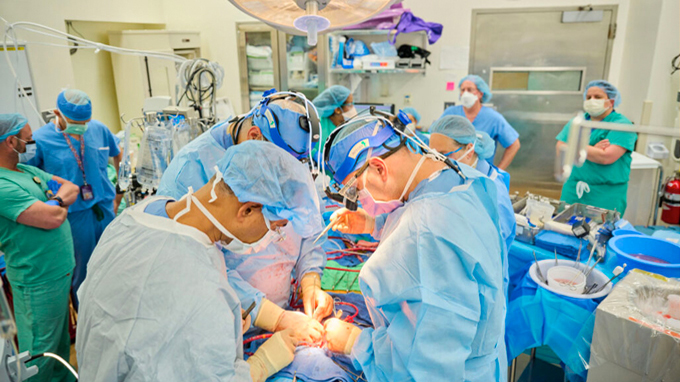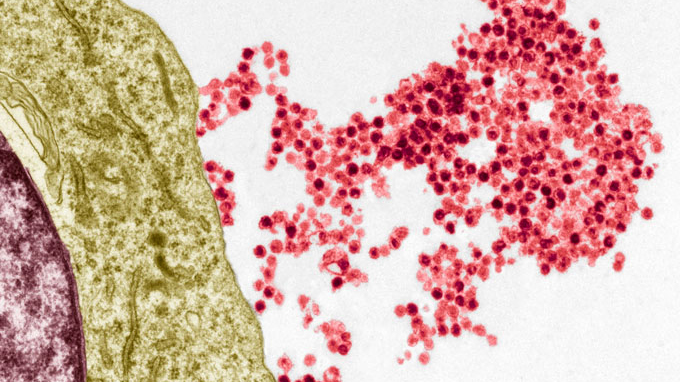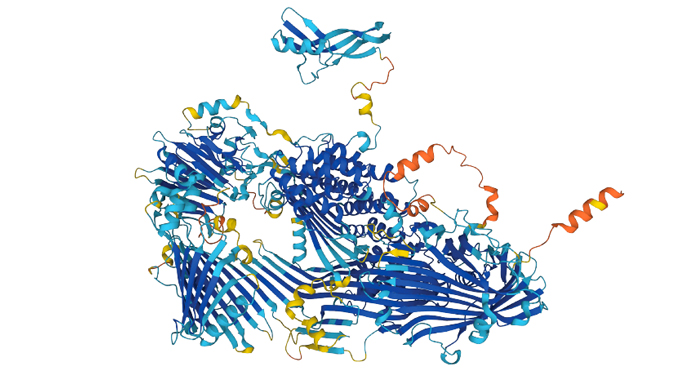These 5 biomedical advances gave 2022 a sci-fi feel
Big steps include pig to human organ transplants and synthetic embryos

A natural mouse embryo (top) and synthetic mouse embryo (bottom) at about eight days of development show similar brain formation (bright pink and orange represent different regions in the brain).
Amadei and Handford
COVID-19 may continue to dominate headlines, but this year’s biomedical advances weren’t all about “the Rona.” 2022 saw fruitful and seemingly fantastical research that could one day mean good news for patients.
Growing synthetic embryos
Two reports this year revealed how to fabricate the early stages of mammalian life. With a bit of laboratory wizardry, scientists mingled mouse stem cells, which self-assembled to spawn what appears to be a kind of fledgling embryo — no egg or sperm required. As they grow, these stem cell–derived synthetic embryos can form proto hearts, brains and guts. But the similarity to natural mouse embryos fades quickly. The synthetic and natural versions match up for only about eight days of development. Still, studying similar clusters of human stem cells might one day offer a way to probe the development of human embryos without relying on the real thing.
Next-level organ transplants
Organ transplants have started mirroring science fiction. In January, an ailing 57-year-old man received a heart from a genetically engineered pig and survived for two months with the transplanted organ (SN: 3/12/22, p. 26). Other surgeries plugged pig hearts into the bodies of brain-dead patients, a step that prepares researchers for future clinical trials (SN Online: 7/12/22). And a high-tech system hooked up to pigs’ bodies an hour after death helped keep organs functioning. The technology, which might one day preserve human organs slated for surgery, pumps a mix of real and artificial blood through the animals (SN: 9/10/22, p. 12).

Epstein-Barr’s link to MS
Scientists dropped an Epstein-Barr bombshell early this year when they suggested that the virus is the main cause of the neurodegenerative disease multiple sclerosis. Infection with the virus greatly upped the odds of later developing MS, an analysis of millions of U.S. military recruits found. The link between the virus and MS, which scientists had suspected but never outlined so clearly, might guide the way to potential MS treatments — or even, one day, vaccines to prevent the disease (SN: 8/13/22, p. 14).

A complete human genome, finally
Researchers announced back in 2003 that they had read all the genetic info packed into strands of human DNA — the first sequence of the human genome. But that genome was not quite complete; some tangled-up lengths of DNA remained difficult to decipher. This year, a team tied up the loose ends. In March, the researchers reported a new and improved human genome — this time, complete from end to end (SN: 4/23/22, p. 6).

AI predicts protein structures
Artificial intelligence has taken structural biology to warp speed. A deep-learning program called AlphaFold has now predicted the 3-D shapes of more than 200 million proteins (SN: 9/24/22, p. 16). Though the shapes are not lab-verified structures, the massive dataset could help researchers studying health and disease in all sorts of organisms, from humans to honeybees. Now, looking up a protein’s predicted structure is almost as easy as typing it into Google, according to the cofounder of the AI company that created AlphaFold.








